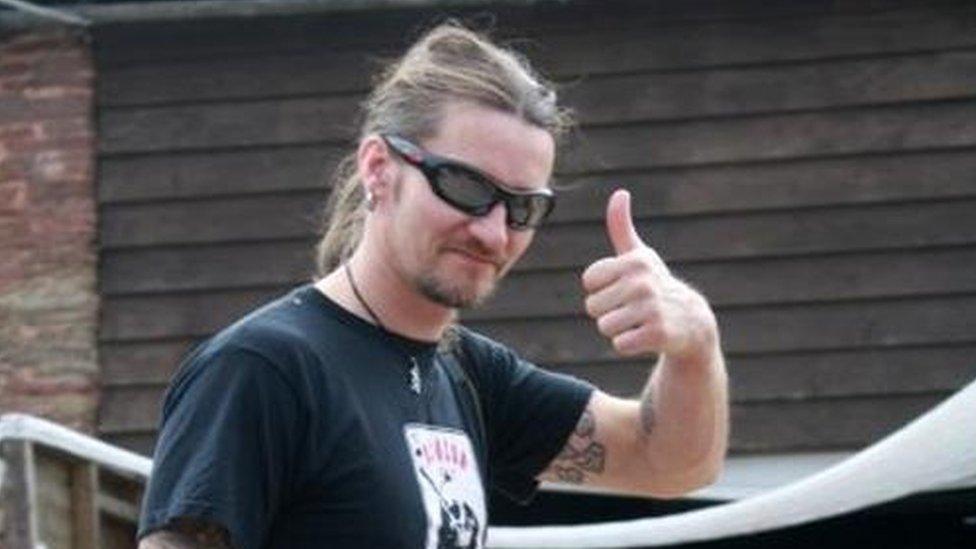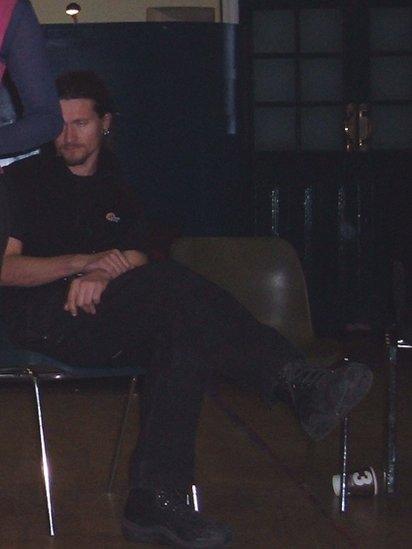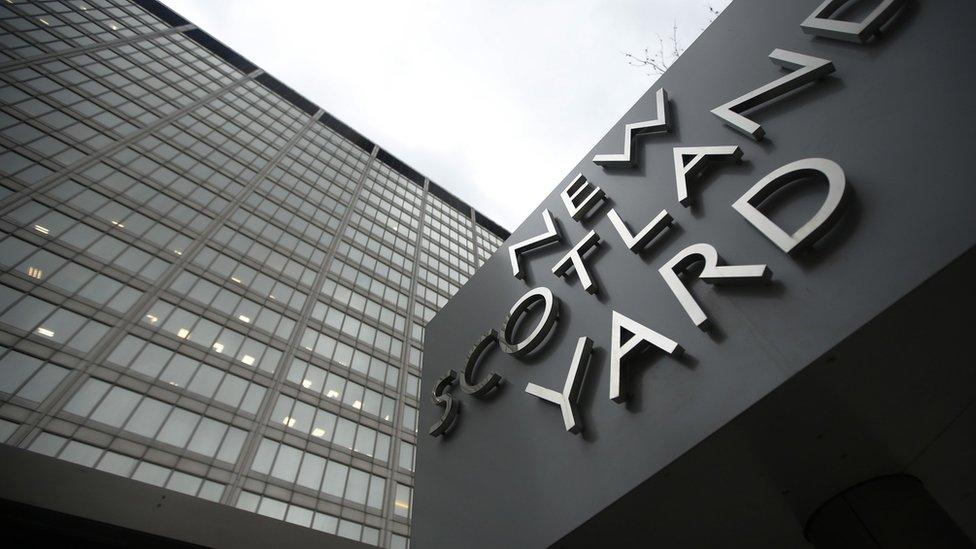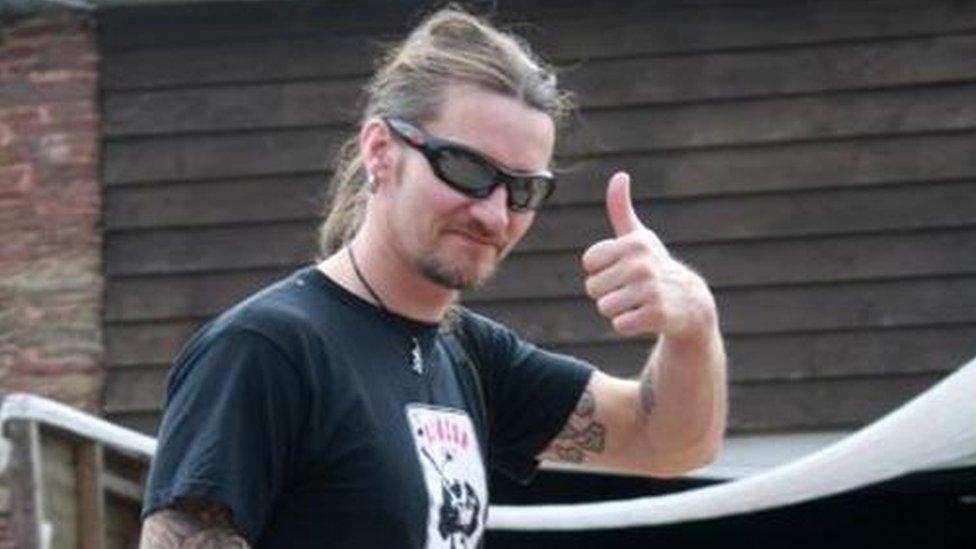Undercover police: Legal challenge over inquiry
- Published

Mark Kennedy is one of the former officers
Campaigners who say they were victims of abuses by undercover police are threatening legal action to force a public inquiry to be extended to Northern Ireland.
In a legal warning letter to the home secretary, they say one of the officers at the centre of the affair operated beyond England and Wales.
They say their human rights will be breached if the inquiry is not widened.
If the action goes ahead, it could delay the legally complex inquiry, external.
Home Secretary Theresa May launched the Pitchford inquiry after a string of scandals involving undercover officers revealed miscarriages of justice, women tricked into relationships and claims that murdered teenager Stephen Lawrence's family had been monitored by police.
The allegations relate to officers with two disbanded units - the Metropolitan Police's special demonstration squad and the National Public Order Intelligence Unit.
In each case they were deployed to infiltrate a range of alternative political movements, from anarchists to environmental demonstrators.
While the inquiry's territorial remit is limited to England and Wales, external, at least one undercover officer, Mark Kennedy, went to Northern Ireland and Scotland in 2005, alongside environmental campaigners and anti-globalisation demonstrators. He also travelled to similar events abroad.

More on the undercover policing inquiry

In the letter sent to the home secretary on Friday, a formal step before court action begins, lawyers say Kennedy was in Belfast with anti-globalisation campaigner Jason Kirkpatrick and that he had helped at a number of events.
They allege that a failure to investigate how this came about would be a breach of the campaigner's right to a private life, and freedom to take part in political campaigning.

Mark Kennedy, pictured at an event in Belfast
Mr Kirkpatrick has already been formally accepted by the inquiry as a "core participant", meaning someone who has raised concerns that need to be answered.
He told the BBC that it was irrational for the government to order the inquiry to cover England and Wales but ignore events involving the same officers and campaigners elsewhere.
"There must be investigations in the operations of these secret police units wherever they occurred," Mr Kirkpatrick said.
"Unless the public inquiry's remit is broadened, for anyone living outside England and Wales, the Pitchford Inquiry is nothing but a painful whitewash."
Similar calls for the inquiry to be extended to cover Scotland have already won cross-party support at Holyrood with campaigners expected to launch a parallel legal action.
Justice and policing are devolved to Scotland and Northern Ireland, but the home secretary retains responsibility for a number of major issues such as national security and terrorism.
Many major undercover operations cut across the UK's internal borders and the officers at the centre of the public inquiry were largely managed by police chiefs in London.
A spokesman for the Home Office said: "The Pitchford Inquiry's terms of reference specify it should specifically consider undercover police operations conducted by English and Wales police forces. The inquiry has an independent status under the Inquiries Act 2005 and it is for them to consider evidence against the terms of reference."
- Published22 December 2015

- Published10 June 2016

- Published1 June 2016
